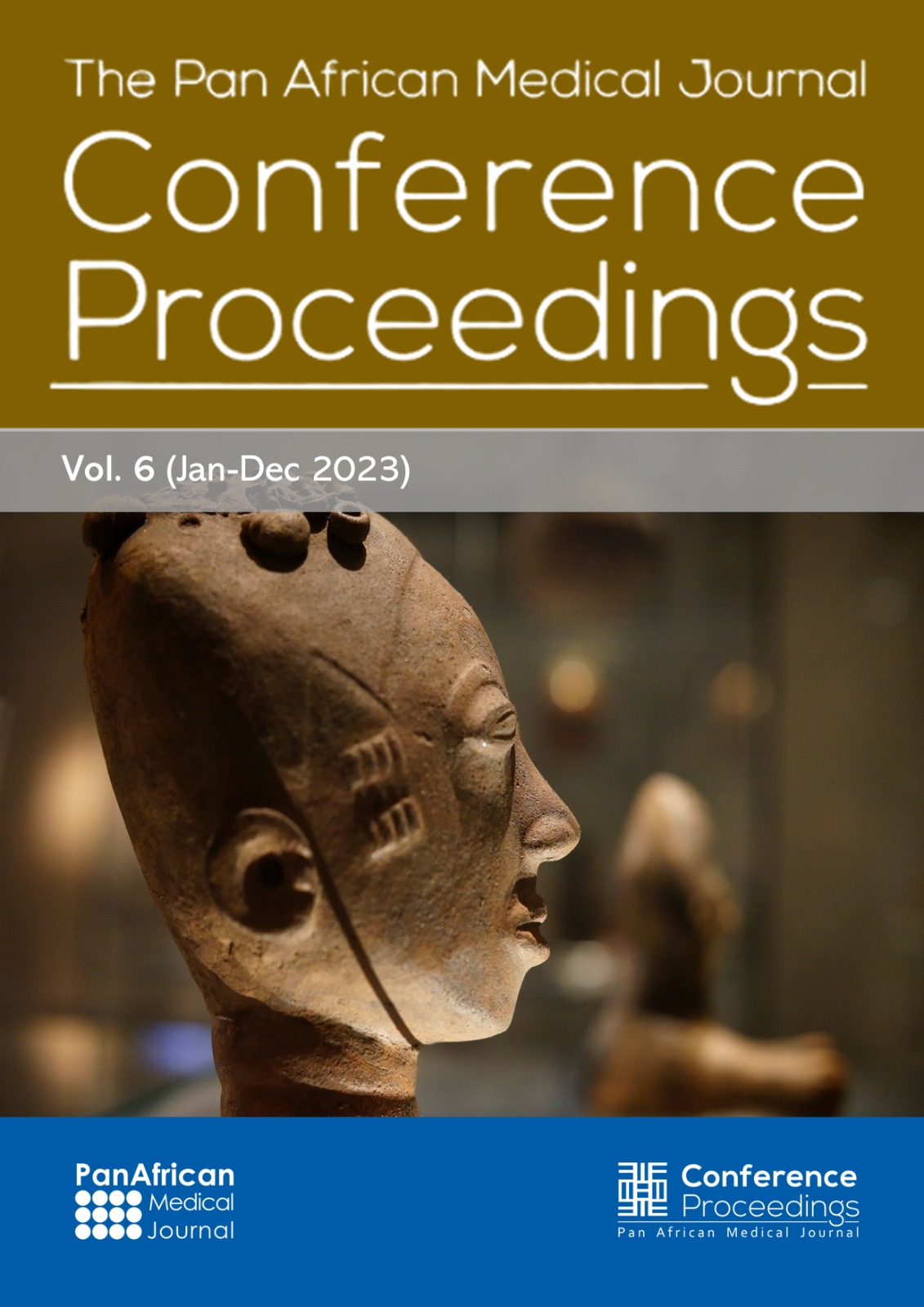Conference abstract
Work place violence toward health workers in Federal Medical Center (FMC) Birnin Kebbi
Pan African Medical Journal - Conference Proceedings. 2022:12(13).17
Feb 2022.
doi: 10.11604/pamj-cp.2022.12.13.1229
Archived on: 17 Feb 2022
Contact the corresponding author
Keywords: Violence, health workers, workplace, FMC Birnin Kebbi
Oral presentation
Work place violence toward health workers in Federal Medical Center (FMC) Birnin Kebbi
Solomon Rimamchirika1,&, Abubakar Usman1
1Federal Medical Center, Birnin Kebbi, Kebbi State, Nigeria
&Corresponding author
Introduction: World Health Organization (WHO), defined work place violence as an intentional use of power, threatened or actual against another person or group in a work related circumstances that either result in or has a high degree of likelihood of resulting in injury, death, physiological harm, mal-development or deprivation. There is usually large turn up of patients who troop in to Federal Medical Center (FMC) Birnin Kebbi every day. This put so much pressure on the hospital resources especially the human resources resulting to conflict and eventually violence between patients or patient’s relatives and staff or even among health care professional who are supposed to render cooperative holistic care to patients. The study generally is aim at identify major source of violence toward health workers and the effect of violence on health worker’s motivation to work in FMC Birnin Kebbi.
Methods: this is a cross-sectional survey research design involving 147 health workers in FMC Birnin Kebbi, using a stratified sampling technique. A structure questionnaire was administered to collect data. Collected data were analyzed using table, simple percentage and chart,
Results: Patients relative [77.5%] is the major sources of violence toward health workers in FMC Birnin Kebbi. Greater percentage of health workers in carrying out their duty have either witnessed or experienced violence or both [96.7%]. The most prevalent form of violence toward health workers is that of verbal abuse [90.8%] i.e threatening, intimidation, aggression and harassment. The study also reported few cases of bullying [9.2%] i.e beating and slapping of health care workers. The study also reported that violence also affects health workers motivation to work [48.3%] in FMC Birnin Kebbi.
Conclusion: strict managerial measures on curbing violence toward health workers be formulated and publicized. More staff should be employed to raise the bench mark of staff patient ratio and health workers should strive to attend to patients promptly and politely.
Work place violence toward health workers in Federal Medical Center (FMC) Birnin Kebbi
Solomon Rimamchirika1,&, Abubakar Usman1
1Federal Medical Center, Birnin Kebbi, Kebbi State, Nigeria
&Corresponding author
Introduction: World Health Organization (WHO), defined work place violence as an intentional use of power, threatened or actual against another person or group in a work related circumstances that either result in or has a high degree of likelihood of resulting in injury, death, physiological harm, mal-development or deprivation. There is usually large turn up of patients who troop in to Federal Medical Center (FMC) Birnin Kebbi every day. This put so much pressure on the hospital resources especially the human resources resulting to conflict and eventually violence between patients or patient’s relatives and staff or even among health care professional who are supposed to render cooperative holistic care to patients. The study generally is aim at identify major source of violence toward health workers and the effect of violence on health worker’s motivation to work in FMC Birnin Kebbi.
Methods: this is a cross-sectional survey research design involving 147 health workers in FMC Birnin Kebbi, using a stratified sampling technique. A structure questionnaire was administered to collect data. Collected data were analyzed using table, simple percentage and chart,
Results: Patients relative [77.5%] is the major sources of violence toward health workers in FMC Birnin Kebbi. Greater percentage of health workers in carrying out their duty have either witnessed or experienced violence or both [96.7%]. The most prevalent form of violence toward health workers is that of verbal abuse [90.8%] i.e threatening, intimidation, aggression and harassment. The study also reported few cases of bullying [9.2%] i.e beating and slapping of health care workers. The study also reported that violence also affects health workers motivation to work [48.3%] in FMC Birnin Kebbi.
Conclusion: strict managerial measures on curbing violence toward health workers be formulated and publicized. More staff should be employed to raise the bench mark of staff patient ratio and health workers should strive to attend to patients promptly and politely.








